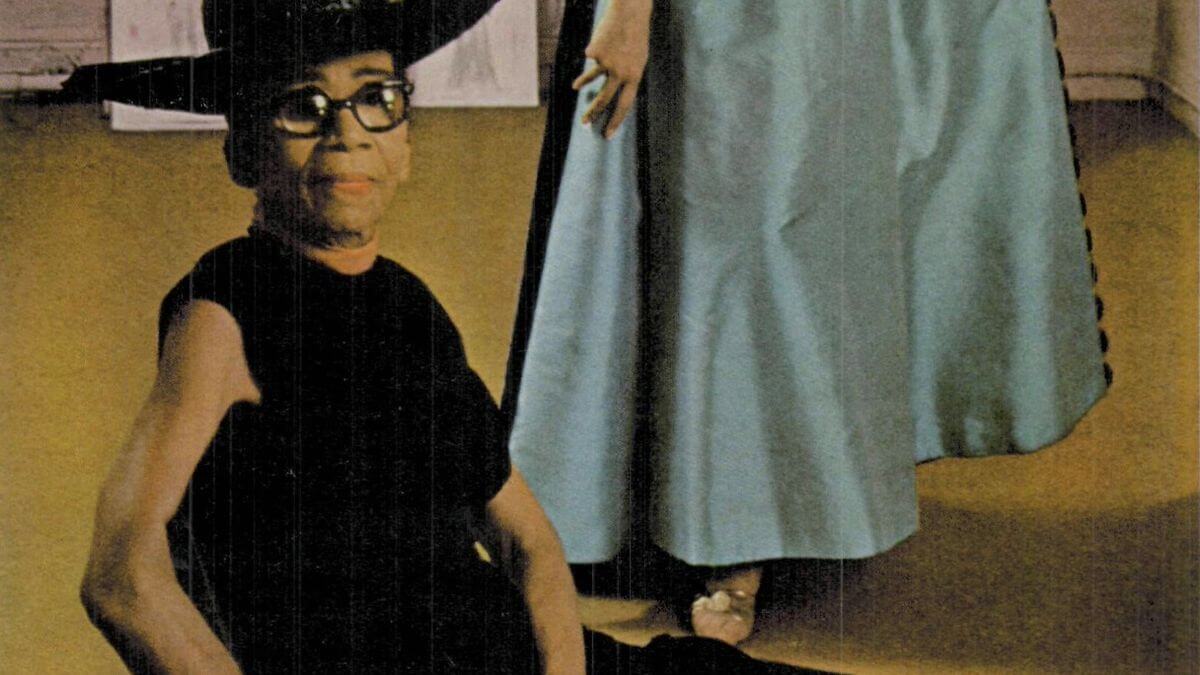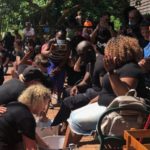
“By allowing this ball and chain of victimhood to stay attached to us (and having this mentality that everyone and everything is racist), we are doing ourselves and our ancestors no favors.”
It’s that time of year again: Black History Month. Some love it. Some hate it. Some have little to say about it. This year, I’d encourage my fellow Black Americans to view it a bit differently.
Can we make it our mission this month to celebrate our history but without playing the victim card? We can take this month to celebrate our ancestors and the heroes that belong to our ethnic group; however, when we blame others for our problems and don’t take responsibility for our future, we are slapping these very ancestors and heroes in the face. I think too many black Americans fail to remember that we are some of the most privileged people to have ever lived. And yes, I did use the word “privileged.”
Think about it: We live in the wealthiest country in the world. The United States accounts for nearly 25% of the world’s GDP. The amount of opportunity for individuals to attain wealth and improve their station in life has never been greater. We are living longer than ever. Literacy is at an all-time high. More people are educated than ever before, which makes it all the more possible to climb the socioeconomic ladder. The crime rate is decreasing. People are safer, and so is their property. I’d say that America isn’t so bad.
So, this Black History Month, let’s take the focus away from defeatist thinking and set it instead towards focusing on what we, ourselves, are so very capable of.
Unfortunately, too many Blacks conceive of America as this racist, xenophobic, bigoted, and hateful country. This is a sad and ridiculous point of view, which is rooted in victimhood. In a 2019 study by the Pew Research Center, it was found that Blacks, specifically black adults, believe that race relations have gotten worse. The study also found that 68% of Blacks blame their race for not being able to get ahead in life. If we as black people believe that the color of our skin is what prevents us from succeeding, then why should we even try to do anything? Why dream to be greater than we are? Why go to work? Why study harder to get into graduate school? Why open that business? Counteracting this narrative of America being this horrible place where only white people are accepted and have a chance to thrive, it’s important to remember that the United States of America was the #1 country for hosting immigrants in 2017—and by a landslide! The United States, in 2017, was home to 49.8 million immigrants. Add up the next four countries: Saudi Arabia, Germany, the Russian Federation, and the United Kingdom, and that is fewer than the number of immigrants that live in the United States.
The message that victimhood sends is that we can’t do anything for ourselves—and that everything that happens to us isn’t our fault but, rather, is the fault of everyone and everything else. It makes us passive. We have to stop blaming all of our problems on “racism,” “oppression,” “white privilege”—or any of these other terms we use as a scapegoat for our troubles. In my first article at Merion West, I discussed how we, blacks Americans, are shooting ourselves in the foot by many of our own actions, rather than being “held down” by white Americans.
And I’m not alone in thinking this. Joining me is Dr. John H. McWhorter, an associate professor at Columbia University. In his 2001 piece “What’s Holding Blacks Back?,” McWhorter explains that it is our attitudes, misconceptions, and actions that hold us back. Prominent Black pastor and author, Bishop T.D. Jakes, preached a sermon in August 2012 on the concept of nothing being as powerful as a changed mind. In this sermon, Bishop Jakes makes a powerful statement: “The devil can’t do just anything to you. People can’t do just anything to you. Life can’t do just anything to you. I don’t care how little you are, there is nothing as powerful as a changed mind!” Whether you consider yourself “religious” or not, the lesson still holds. Just imagine how much more Black America could accomplish and how much further we could progress if we cut off the ball and chain of victimhood, stood on our feet, took responsibility for our actions and outcomes, and changed the trajectory of our culture.
One thing that can be agreed upon for sure, I believe, is the fact that we, Blacks alive today, don’t have to go through as much hardship as our ancestors did. Each subsequent generation has stood and continues to stand on the shoulders of the previous generation. It is the duty of each generation to do better than the one that came before them; it is unwise to cause the work of our ancestors to go to waste over our foolish actions and areas of regression. But some of the actions that we believe are moving us forward indeed are actually dragging us backward. Calling an interviewer or company racist just because we don’t get the job (and the job goes to a white person) is outrageous. Maybe the person they hired was a better fit or more qualified. Or maybe they hired a different black person for any number of reasons. The same goes for labeling the criminal justice system as “racist” just because blacks are disproportionately incarcerated. Men are also disproportionately incarcerated, but I hear few black Americans calling policing and the courts “sexist.”
By allowing this ball and chain of victimhood to stay attached to us (and having this mentality that everyone and everything is racist), we are doing ourselves and our ancestors no favors. Victimhood holds us back and makes us live miserable lives. We have the power to overcome obstacles that stand in the way in our personal lives—and to control our destiny; that is the mindset our ancestors had. The black fashion designer Ann Lowe used that mindset to overcome her shop flooding ten days before Jaqueline Bouvier’s wedding dress and 14 of the bridesmaid dresses were supposed to be done. This is the same attitude that pushed Harriet Tubman to gain her own freedom and lead others to freedom while overcoming headaches, the elements of the outdoors, a high bounty on her head, along with being hunted. James Armistead, the American double agent during the Revolutionary War, used this mindset to push him onward in his missions to relay information back to the Continental Army while overcoming the possibility of being caught, tortured, and killed. This mentality was possessed by Dr. Martin Luther King Jr.; without this mindset of resilience he would not have overcome the death threats, the bombings of his home, and the constant harassment.
If these great men and women can use the mentality of grit and perseverance to overcome these obstacles, just imagine the results we can get in our personal lives and just how much progress Blacks today can make—and continue to make. But focusing on a narrative of victimhood—that we are being held down, as if we are powerless to work harder and make the right decisions—gets us absolutely nowhere. So, this Black History Month, let’s take the focus away from defeatist thinking and set it instead towards focusing on what we, ourselves, are so very capable of.
Solomon Green is the host of the podcast “One More Thing with Solo Green.”










